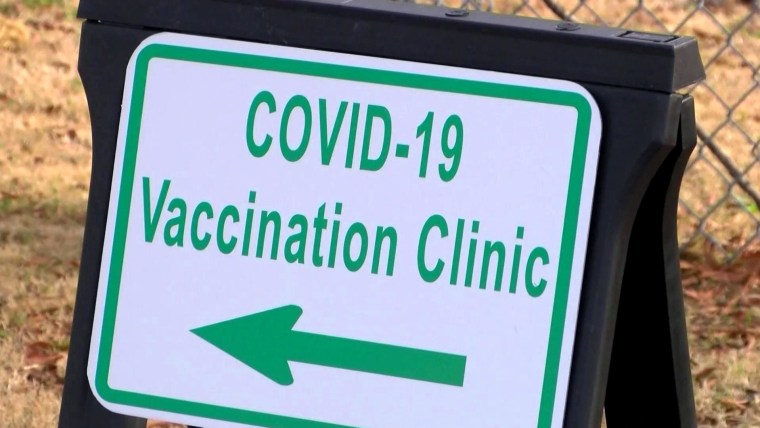Kaitlyn Romoser initial caught Covid-19 in March, possible on a journey to Denmark and Sweden, just as the scope of the pandemic was getting obvious. Romoser, who is 23 and a laboratory researcher in School Station, Texas, examined constructive and had a couple of days of mild, coldlike indications.
In the weeks that adopted, she bounced back to what felt like a complete restoration. She even obtained one more check, which was damaging, in get to sign up for a research as one of the earliest donors of convalescent blood plasma in a bid to help others.
6 months later, in September, Romoser got unwell once more, soon after a vacation to Florida with her dad. This second bout was substantially worse. She missing her perception of taste and smell and endured lingering head aches and fatigue. She analyzed optimistic for Covid-19 the moment far more — along with her cat.
Full coverage of the coronavirus outbreak
Romoser believes it was a distinct circumstance of reinfection, somewhat than some mysterious reemergence of the unique infection gone dormant. For the reason that the coronavirus, like other viruses, frequently mutates as it multiplies and spreads by way of a community, a new an infection would bear a various genetic fingerprint. But because neither lab had saved her screening samples for genetic sequencing, there was no way to ensure her suspicion.
“It would be great to have proof,” reported Romoser. “I’ve literally been straight up named a liar, mainly because men and women do not want to consider that it is achievable to be reinfected. Why would I lie about staying unwell?”
As hundreds of thousands of Americans wrestle to get better from Covid-19 and thousands and thousands extra scramble for the defense offered by vaccines, U.S. overall health officials may be overlooking an unsettling subgroup of survivors: these who get infected far more than after. Determining how prevalent reinfection is amongst persons who contracted Covid-19 — as perfectly as how immediately they become vulnerable and why — carries vital implications for our knowledge of immunity and the nation’s endeavours to devise an productive vaccination program.
Experts have verified that reinfections following initial illness brought about by the SARS-CoV-2 virus are doable, but so far have characterized them as uncommon. Fewer than 50 cases have been substantiated globally, according to a global reinfection tracker. Just five have been substantiated in the U.S., such as two detected in California in late January.
That seems like a alternatively insignificant amount. But scientists’ knowledge of reinfection has been constrained by the confined quantity of U.S. labs that retain Covid-19 screening samples or conduct genetic sequencing. A KHN evaluation of surveillance endeavours finds that several U.S. states are not rigorously monitoring or investigating suspected cases of reinfection.
I forecast that we are missing instances of reinfection.
KHN sent queries about reinfection surveillance to all 50 states and the District of Columbia. Of 24 responses, less than 50 percent provided particulars about suspected or verified reinfection conditions. In which officials claimed they’re actively checking for reinfection, they have identified much additional opportunity scenarios than previously predicted.
In Washington point out, for occasion, health and fitness officers are investigating almost 700 circumstances that satisfy the requirements for feasible reinfection, with three dozen awaiting genetic sequencing and just a person scenario verified.
In Colorado, officers estimate that feasible reinfections make up just .1 per cent of positive coronavirus instances. But with a lot more than 396,000 scenarios noted, that indicates just about 400 people might have been infected a lot more than the moment.
In Minnesota, officials have investigated far more than 150 situations of suspected reinfection, but they absence the genetic material to affirm a diagnosis, a spokesperson said.
In Nevada, exactly where the first U.S. scenario of Covid-19 reinfection was identified past summer months, Mark Pandori, director of the condition general public well being lab, said there’s no doubt conditions are likely undetected.
“I predict that we are lacking circumstances of reinfection,” he reported. “They are really complicated to verify, so you want specialized teams to do that perform, or a core lab.”
Such instances are different from cases of so-named extended-haul Covid-19, in which the original an infection triggers debilitating signs that linger for months and viral particles can carry on to be detected. Reinfection occurs when a human being is contaminated with Covid-19, clears that strain and is infected once more with a different pressure, raising issues about sustained immunity from the illness. These reinfections take place consistently with 4 other coronaviruses that flow into between individuals, leading to prevalent colds.
Facilities for Condition Management and Avoidance pointers phone for investigating for possible reinfection when an individual assessments constructive for Covid-19 at minimum 90 times soon after an unique infection (or at the very least 45 times for “highly suspicious” scenarios). Affirmation of reinfection involves genetic sequencing of paired samples from every single episode to inform no matter whether the genomes involved are unique.
Download the NBC News app for whole protection of the coronavirus outbreak
But the U.S. lacks the capability for strong genetic sequencing, the method that identifies the fingerprint of a particular virus so it can be in comparison with other strains. Jeff Zients, head of the federal Covid process force, observed late final month that the U.S. ranks 43rd in the earth in genomic sequencing.
To day, only a portion of constructive coronavirus samples has been sequenced, even though the Biden administration is performing to quickly grow the exertion. On Feb. 1, CDC Director Dr. Rochelle Walensky told reporters that sequencing has “increased tenfold” in the latest months, from 251 sequences the week of Jan. 10 to 2,238 the week of Jan. 24. The agency is performing with personal companies, states and academic labs to ramp up to 6,000 sequences for each 7 days by mid-February.
Washington’s state epidemiologist for communicable illnesses, Dr. Scott Lindquist, said officers have prioritized genetic sequencing at the state laboratory, with designs to begin genotyping 5 % of all samples collected. That will permit officers to form by those nearly 700 opportunity reinfections, Lindquist reported. Extra critical, the effort will also aid signal the presence of substantially mutated kinds of the coronavirus, recognised as variants, that could have an effect on how quickly the virus spreads and, perhaps, how sick Covid-19 makes people today.
“Those two places, reinfection and variants, may perhaps cross paths,” he stated. “We required to be in front of it, not powering it.”
How very long does immunity past?
The specter of reinfections complicates one particular of the central queries of the Covid-19 danger: How long following natural infection or vaccination will men and women continue being immune?
Early scientific studies proposed immunity would be quick-lived, only a few months, though additional modern investigate finds that sure antibodies and memory cells may persist in Covid-infected sufferers extended than 8 months.
“We actually really do not know” the marker that would sign immunity, mentioned Dr. Jason Goldman, an infectious illnesses specialist at Swedish Health-related Center in Seattle. “We never have the take a look at you could accomplish to say indeed or no, you could be contaminated.”
Goldman and colleagues confirmed a situation of reinfection in a Seattle person final slide, and considering the fact that then have recognized 6 or 7 possible situations. “This is a substantially additional typical scenario than is getting regarded,” he said.
The chance of reinfection signifies that even people who’ve had Covid-19 will need to continue to be vigilant about curbing re-publicity, reported Dr. Edgar Sanchez, an infectious diseases health practitioner at Orlando Overall health in Florida.
“A ton of individuals check with, ‘How long do I have to be concerned about getting Covid again?’” he reported. “I basically convey to them this: ‘You are probably protected for a number of weeks, probably even up to a few of months, but outside of that, it’s truly unclear.’”
The message is equivalent for the wider culture, mentioned Dr. Monthly bill Messer, an expert in viral genetics at Oregon Wellbeing & Science College in Portland, who has been pondering the cultural psychology of the Covid-19 reaction. Evidence suggests there may perhaps not be a distinct-slice return to standard.
“The strategy that we will finish this pandemic by beating this coronavirus, I never think which is in fact the way it is going to materialize,” he explained. “I think that it is a lot more likely that we’re heading to understand how to be snug dwelling with this new virus circulating among the us.”





